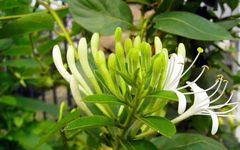1、Jin Yin Hua (Honeysuckle Flower)
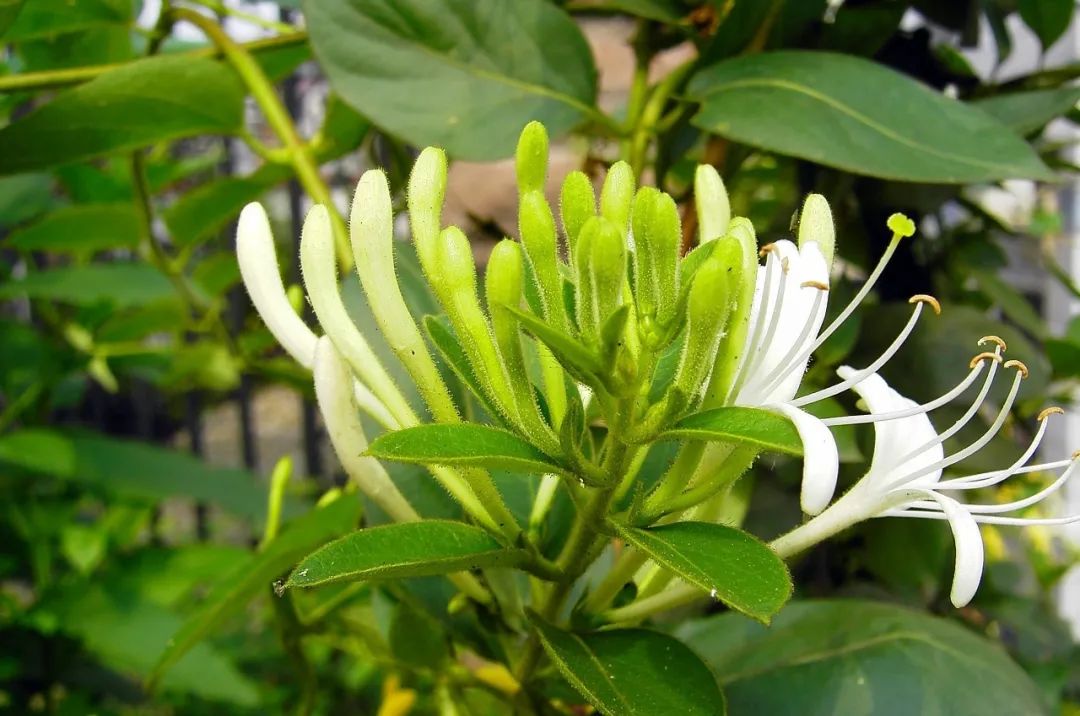
Jin Yin Hua is the flower bud of the Lonicera japonica plant, containing chlorogenic acid, inositol, flavonoids, and other components. Pharmacological tests have shown that Jin Yin Hua has anti-inflammatory and antipyretic effects, inhibiting influenza viruses and various pathogenic bacteria and skin pathogens, reflecting its heat-clearing and detoxifying properties.
Traditional Chinese Medicine (TCM) considers it to be cold in nature, sweet in taste, and functions to clear heat and detoxify, suitable for febrile diseases, heat-toxicity dysentery, sores, carbuncles, and other conditions of excessive heat-toxicity.
Dosage: Generally 6-12 grams; however, it is not suitable for those with deficiency-cold diarrhea or sores with clear pus without heat-toxicity.
2、Ban Lan Gen (Isatis Root)
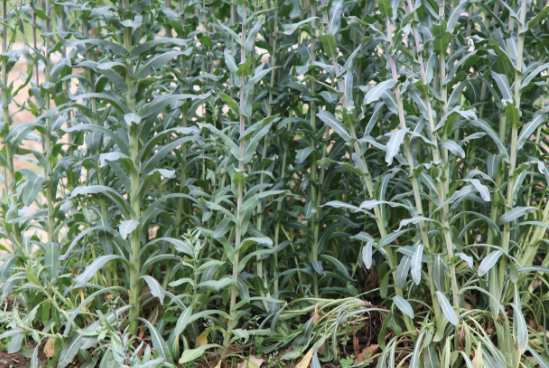
Ban Lan Gen is the root of the Isatis indigotica and Isatis tinctoria plants, containing indirubin, isatis root indigo, β-sitosterol, etc. Ban Lan Gen has significant antiviral effects and inhibits various pathogenic bacteria, including Leptospira. Clinically, Ban Lan Gen decoction is used orally or by intramuscular injection to treat epidemic viral encephalitis with significant efficacy; it is also effective for acute and chronic hepatitis, alleviating or resolving symptoms and promoting liver function improvement. It has varying degrees of therapeutic effects on viral skin diseases such as herpes simplex, shingles, pityriasis rosea, and flat warts.
TCM considers it to be cold in nature, bitter in taste, and functions to clear heat and detoxify, cool the blood, and benefit the throat, suitable for influenza encephalitis, viral encephalitis, pneumonia, erysipelas, heat-toxicity rashes, fire eyes, herpes, etc.
Dosage: Generally 5-9 grams; however, it is not suitable for those with spleen and stomach deficiency-cold.
3、Pu Gong Ying (Dandelion)
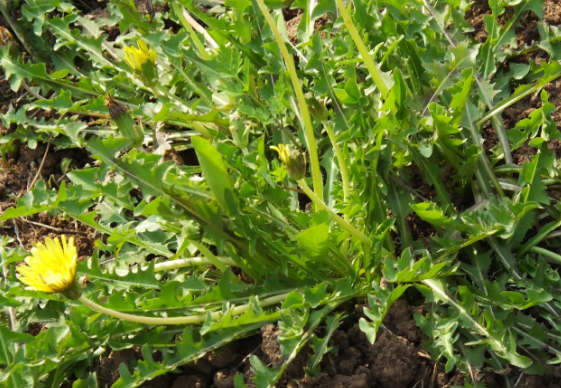
Pu Gong Ying is the whole herb of the Taraxacum mongolicum plant, containing taraxasterol, choline, inulin, and fruit acids. Its decoction has antimicrobial effects and also has liver-protective, bile-expelling, and immune-enhancing properties. TCM considers it to be cold in nature, sweet and bitter in taste, and functions to clear heat and detoxify, reduce swelling and disperse nodules, suitable for acute mastitis, lymphadenitis, shoulder gland inflammation, gastritis, hepatitis, cholecystitis, urinary tract infections, etc. Dosage: 9-15 grams, crushed for external application can be used for breast abscesses, rashes, and carbuncles.
4、Zhi Zi (Gardenia Fruit)
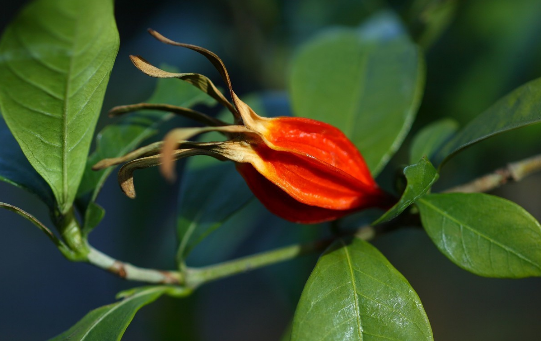
Zhi Zi is the fruit of the Gardenia jasminoides plant, containing various bitter glycosides, as well as mannitol and ursolic acid. Zhi Zi has a bile-expelling effect, increasing bile secretion; it also has cooling, sedative, analgesic, and anticonvulsant effects, and exhibits antimicrobial activity against various pathogenic bacteria and skin pathogens.
TCM considers it to be cold in nature, bitter in taste, and functions to drain fire and relieve irritability, clear heat and dampness, cool the blood and detoxify, suitable for heat diseases with irritability and insomnia, jaundice, red eyes, epistaxis, and heat-toxicity sores.
Dosage: 3-9 grams.
5、Xia Ku Cao (Selfheal Spike)
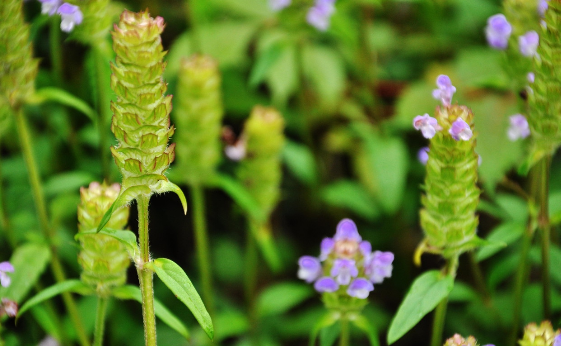
Xia Ku Cao is the flower or whole herb of the Prunella vulgaris plant, containing triterpenoid saponins and their aglycones, volatile oils, vitamins, and potassium chloride. Studies have shown that Xia Ku Cao has blood pressure-lowering effects; its decoction has varying degrees of inhibitory effects on common skin fungi and various pathogenic bacteria.
TCM considers it to be cold in nature, bitter and spicy in taste, and functions to clear liver fire, disperse stagnation, and lower blood pressure, suitable for red, swollen, and painful eyes caused by liver fire, eye pain, photophobia, tearing, headaches, dizziness, etc.; it is also used for scrofula and goiter caused by phlegm-fire stagnation.
Dosage: Generally around 9 grams.
6、Zhi Mu (Anemarrhena Rhizome)
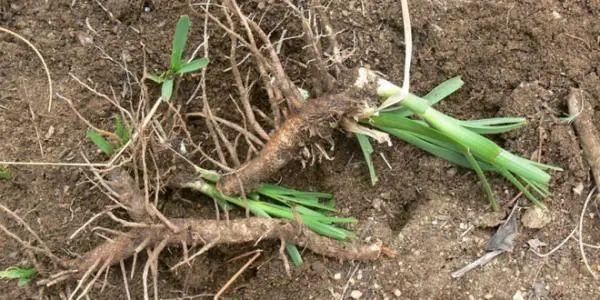
Zhi Mu is the rhizome of the Anemarrhena asphodeloides plant, containing various saponins and flavonoids, as well as mangiferin. Tests have shown that Zhi Mu has significant antipyretic effects, with notable efficacy against epidemic hemorrhagic fever, epidemic viral encephalitis, and pulmonary tuberculosis.
TCM considers it to be cold in nature, sweet and bitter in taste, and functions to clear heat, drain fire, nourish yin, and moisten dryness, suitable for cough and wheezing due to lung heat or yin deficiency, irritability and thirst, bone steaming heat, difficulty in urination, and constipation.
Dosage: Generally 6-9 grams, but contraindicated for those with kidney yang deficiency, weak pulse, and loose stools.
7、Lian Qiao (Forsythia Fruit)
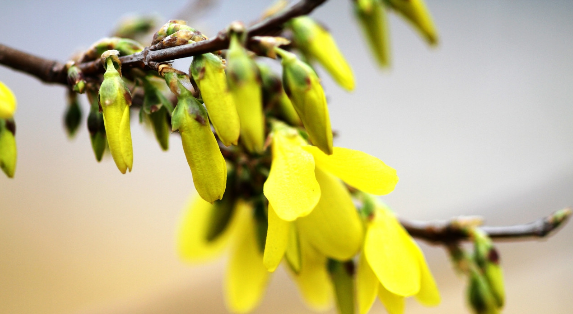
Lian Qiao is the fruit of the Forsythia suspensa plant, containing volatile oils, forsythoside, flavonoids, and alkaloids. Pharmacological tests indicate that Lian Qiao has broad-spectrum antibacterial effects, with forsythoside likely being the main antibacterial component; it also has anti-inflammatory, antiemetic, diuretic, and cardiotonic effects. The flavonoids can enhance the density of capillaries, thus having hemostatic effects on bleeding and subcutaneous hemorrhage caused by capillary rupture.
TCM considers it to be slightly cold in nature, bitter in taste, and functions to clear heat and detoxify, disperse nodules and reduce swelling, suitable for warm heat, erysipelas, rashes, carbuncles, and allergic purpura.
Dosage: Generally 6-9 grams.
8、Lu Gen (Reed Rhizome)
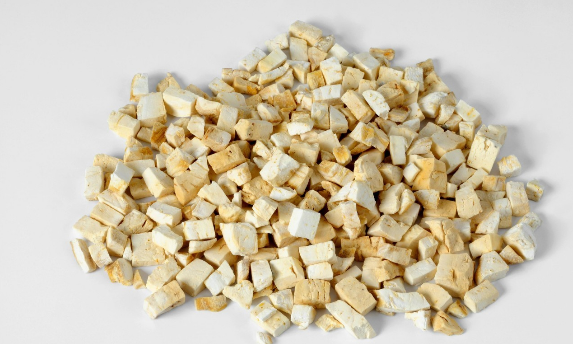
Lu Gen is the underground stem of the Phragmites australis plant, containing coixol and asparagine. TCM considers it to be cold in nature, sweet in taste, and functions to clear heat, generate fluids, relieve irritability, stop vomiting, and promote urination, suitable for heat diseases damaging fluids, irritability and thirst, gastric heat vomiting, esophageal obstruction, and treatment of lung heat cough and lung abscess.
Dosage: Generally 9-30 grams for dried; 15-40 grams for fresh.
9、Jue Ming Zi (Cassia Seed)
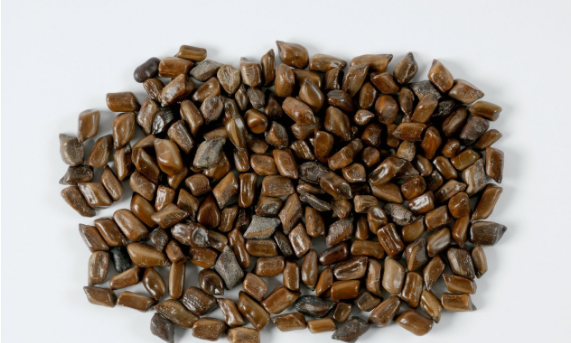
TCM considers Jue Ming Zi to be slightly cold in nature, sweet and bitter in taste, and functions to clear the liver, brighten the eyes, promote urination, and relieve constipation, suitable for eye redness and pain caused by liver heat or wind-heat in the liver channel, photophobia and excessive tearing; it is also effective for treating hypertension, hepatitis, ascites due to liver cirrhosis, and habitual constipation.
Dosage: 3-9 grams, crushed and decocted.
Note: Some text and image resources in this article are sourced from the internet. The purpose of reprinting this article is to convey more information. If there are any errors in source attribution or infringement of your legal rights, please notify us immediately, and we will delete it promptly and apologize to you.
Previous Highlights: Besides Bao He Wan, these 6 types are also suitable for abdominal distension! Can liver qi stagnation cause abdominal distension? 9 commonly used Chinese patent medicines for menopausal syndrome, improving sleep, and alleviating irritability! 8 best Chinese patent medicines for coronary heart disease, improving chest tightness, chest pain, palpitations, and shortness of breath.

